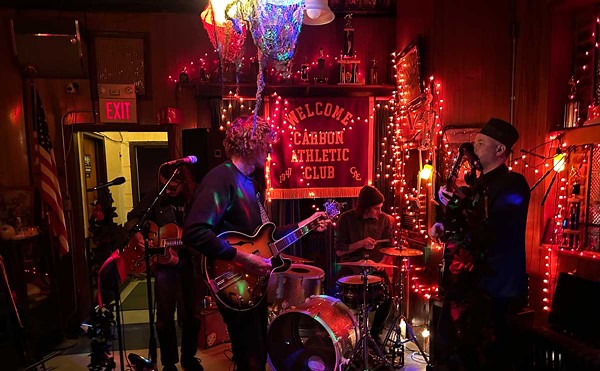Bad news for those concerned about a controversial plan to ship steam generators contaminated with nuclear waste through the Great Lakes and the St. Lawrence Seaway.
The Canadian Nuclear Safety Commission (CNSC) announced last Friday that it will issue a license to Ontario's Bruce Power plant, authorizing it to ship 16 decommissioned generators — each one the size of a school bus and weighing in at 100 tons — to Sweden for recycling.
It is an issue of local importance because the route includes Lake St. Clair and the Detroit River.
"This is a dark day for communities around the Great Lakes and the St. Lawrence River, and for the 40 million people whose drinking water is derived from these sources, for this shipment of radioactive waste is just the beginning — it will be followed by many other shipments," Michael Keegan, chair of the Coalition for a Nuclear-Free Great Lakes, said in a press release issued by the group.
But it's not just the greenies who are mounting a campaign to halt the shipments. The corporation has said that it has at least 64 contaminated generators it would eventually like to ship to Sweden.
"This is not over," Sarnia Mayor Mike Bradley told the Toronto Star. There are a couple more chapters to go in this play.
Licenses must still be granted by Transport Canada and the U.S. Department of Transportation for the shipments to get under way.
Governments in the United Kingdom, Norway and Denmark must also grant approval for the generators to go through their territorial waters.
Nearly 80 groups on both sides of the border have lined up in opposition to the plan. Among those working to stop the shipments is the Council of Canadians, which focuses on social, economic and environmental justice issues.
"The Great Lakes is a shared commons, public trust and protected bioregion," said Maude Barlow, the groups national chairperson. She added that the timing of the announcement — made late last Friday — "is a clear indication that the CNSC knows that there will be widespread opposition to their decision."
"These shipments set an extremely dangerous precedent," the group's Emma Lui added. "This opens the door to transporting radioactive waste that exceeds legal limits across our lakes."
The company, not surprisingly, sees things differently.
"We always believed that this was the right thing to do to reduce our environmental footprint, and we are pleased the soundness of our case has been verified by the CNSC and a license has been approved," Bruce Power President Duncan Hawthorne said in a release.
In reality, though, the company originally planned to store the contaminated generators on-site. Those opposed to the shipments say that is still the best option.
It is not just the hazard they say is posed by moving the generators through the Great Lakes that is of concern. Recycling metal contaminated with nuclear waste is also an issue.
"The practice of contaminating scrap metal supplies by mixing in radioactive waste materials has been condemned by many bodies, including the United Nations, the Steel Manufacturers Association and the International Recycling Bureau," says Kay Cumbow of the Michigan-based group Citizens for Alternatives to Chemical Contamination.
Anyone interested in finding out more or joining in the fight can contact Keegan at 734-770-1441 or Cumbow at 810-346-4513.





